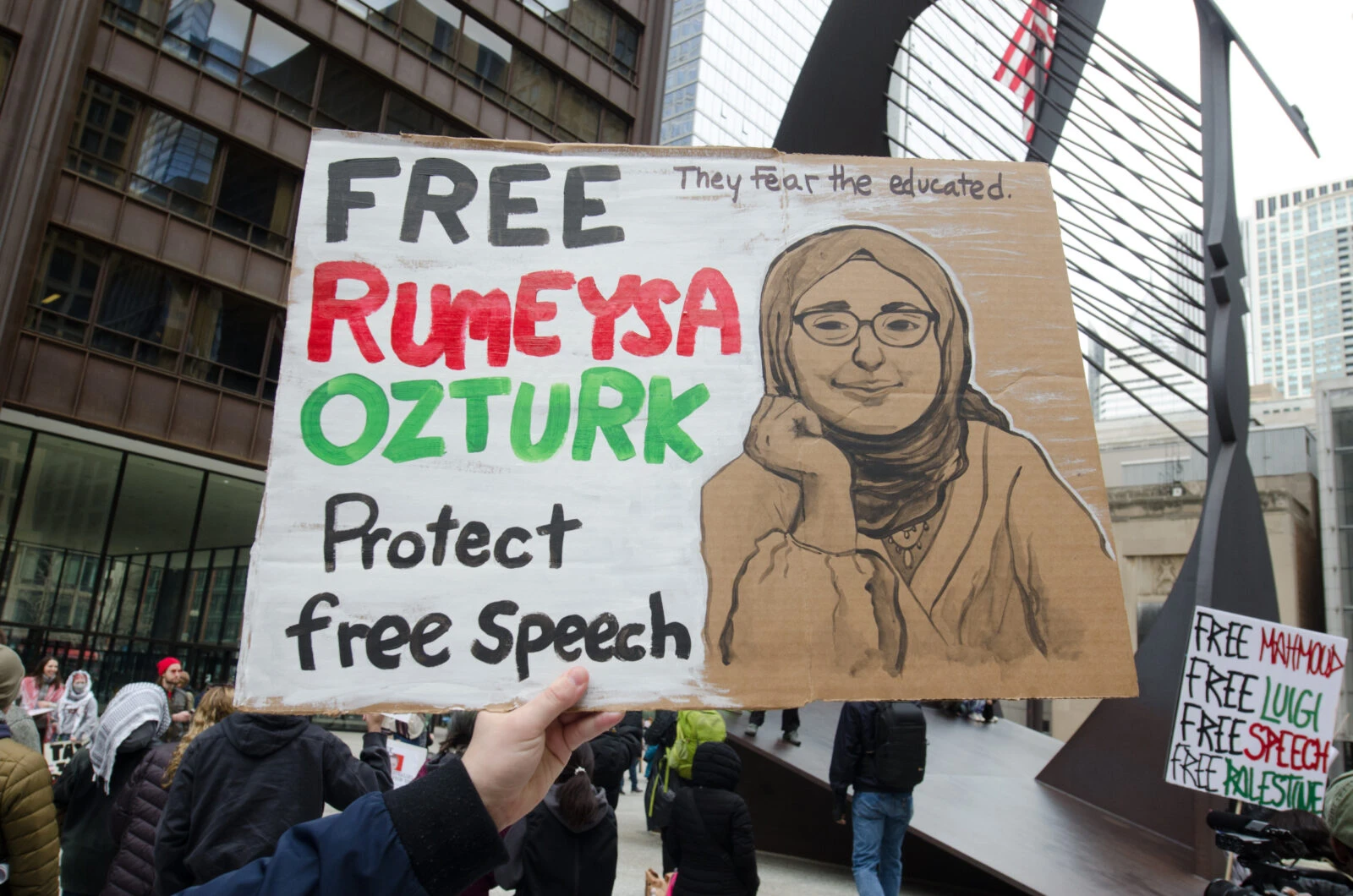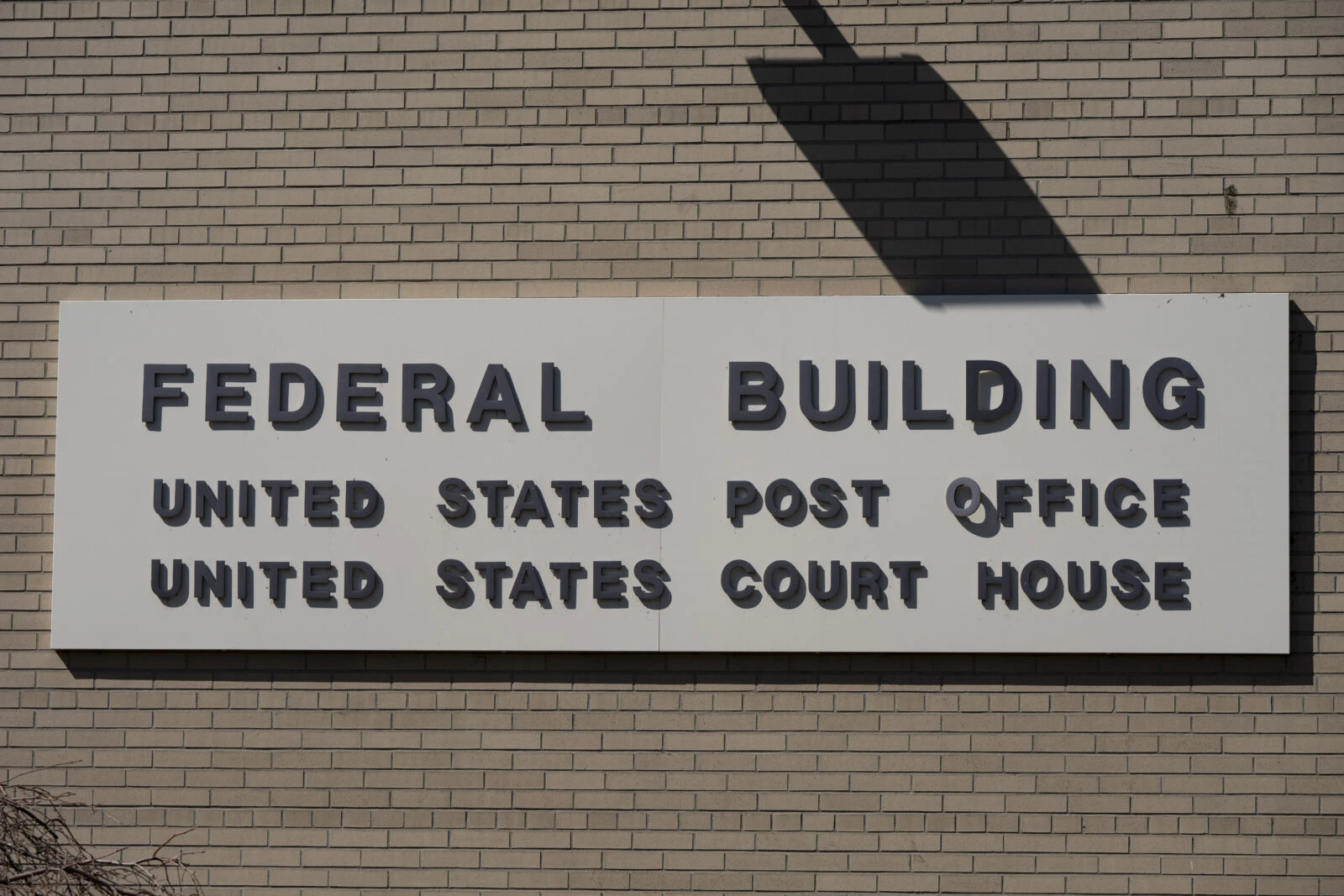US federal judge orders transfer of Rumeysa Ozturk to Vermont
 A protester holding a sign titled 'Free Mahmoud Rumeysa' is pictured in Washington, D.C. to show solidarity with Palestinian people, marking a significant demonstration in the U.S. capital on April 05, 2025. (AA Photo)
A protester holding a sign titled 'Free Mahmoud Rumeysa' is pictured in Washington, D.C. to show solidarity with Palestinian people, marking a significant demonstration in the U.S. capital on April 05, 2025. (AA Photo)
A federal judge on Friday ordered that Turkish doctoral student Rumeysa Ozturk be transferred from a Louisiana detention facility to Vermont, citing constitutional concerns over her arrest and continued detention by U.S. immigration authorities.
Ozturk, 30, a Ph.D. student and Fulbright scholar at Tufts University, was detained on March 25 following the revocation of her student visa.
U.S. District Judge William K. Sessions, based in Vermont, ruled that Ozturk must be moved to his jurisdiction by May 1, ahead of a scheduled May 9 bail hearing.
In his decision, Sessions stated that Ozturk “has raised significant constitutional concerns with her arrest and detention, which merit full and fair consideration in this forum.”

Arrest sparked by pro-Palestinian advocacy
Ozturk was arrested by plain-clothed ICE agents on March 25 in Somerville, Massachusetts, as she was walking to an iftar, a fast-breaking dinner.
According to her attorneys, the arrest stemmed from an op-ed she co-wrote in March 2024 with three other students in The Tufts Daily, advocating for university divestment from companies tied to Israel and describing the situation in Gaza as a “Palestinian genocide.”
The U.S. State Department later cited the op-ed as justification for revoking her student visa, alleging associations that could “undermine U.S. foreign policy.”
Ozturk has not been charged with a crime, but the U.S. government claims she supports Hamas, which Washington designated as a terrorist organization.
Her attorneys deny any such affiliation.

Transfer request based on health and legal access
Ozturk’s legal team, including Jessie Rossman of the ACLU of Massachusetts, requested either her release or transfer to Vermont, citing health risks and due process violations.
Lawyers noted that she has suffered multiple asthma attacks while being held in a 14-person cell shared with over two dozen detainees at a facility in Basile, Louisiana.
An earlier immigration judge had denied her request for bond, arguing she posed a flight risk and a danger to the community, based largely on a one-paragraph memo from the State Department.
That memo referred to her alleged support for groups “temporarily banned” from the Tufts campus.
Sessions, a Clinton appointee, wrote in his ruling that Ozturk’s evidence suggested her First Amendment rights were violated. “The op-ed is self-evidently speech regarding public issues,” he said.
He added that the government “has so far offered no evidence to support an alternative, lawful motivation or purpose for Ms. Ozturk’s detention.”

Broader implications for campus free speech
The case has drawn national attention and sparked concerns over free speech and immigration policy under the Trump administration.
In a U.S. News & World Report op-ed, Gretta Goorno, the opinion editor at The Tufts Daily, warned that the administration’s actions threaten to silence dissenting voices, especially on college campuses.
“Ozturk wasn’t inciting violence. She was sharing an opinion. In the opinion section. In her college newspaper,” Goorno wrote. “Now, that free speech is in danger.”
Goorno added that students, both American and international, are now fearful of speaking out on political issues, particularly regarding U.S. foreign policy in the Middle East.

Timeline of legal proceedings
- March 25: Ozturk arrested in Somerville, Massachusetts
- March 26: Transferred to Vermont, then flown to Louisiana
- April 4: A federal judge in Boston rules the case can proceed in Vermont
- April 14: Judge Sessions hears arguments on bond and transfer
- April 18: Sessions orders Ozturk’s transfer to Vermont by May 1
- May 9: Scheduled bail hearing
- May 22: Hearing on the merits of her detention case
The Department of Homeland Security has not commented on the latest ruling. Ozturk’s lawyers continue to seek her release, asserting her detention is “a complete violation of due process and the rule of law.”



